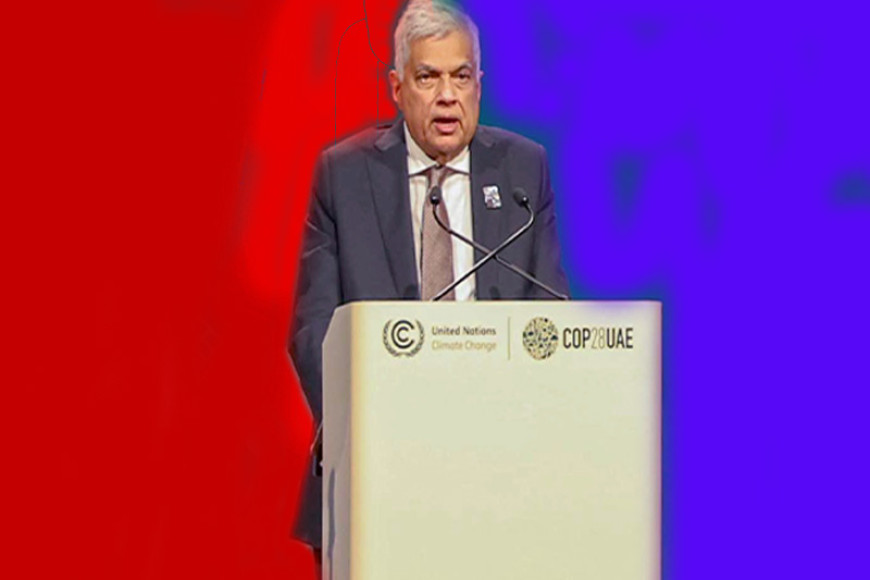Wide Angle on President Ranil’s blue and red oceanic strategy for elections
Sri Lanka Government will enter a decisive period from this coming week, especially on the economic front depending on IMF executive board approval to unlock the third tranche of US$330 million which is vital for President Wickremesinghe’s decision on contesting the upcoming Presidential Election.
While there is uncertainty over the continuity of the IMF programme as Sri Lanka is in an election year and a change of government could jeopardise it, given the progress on debt restructuring and reforms made in recent weeks, it looks like Sri Lanka will successfully cross the hanging bridge.
The International Monetary Fund (IMF) Executive Board is set to review Sri Lanka’s progress under the Article IV Consultation and the second review of the Extended Fund Facility (EFF) on Wednesday (12).
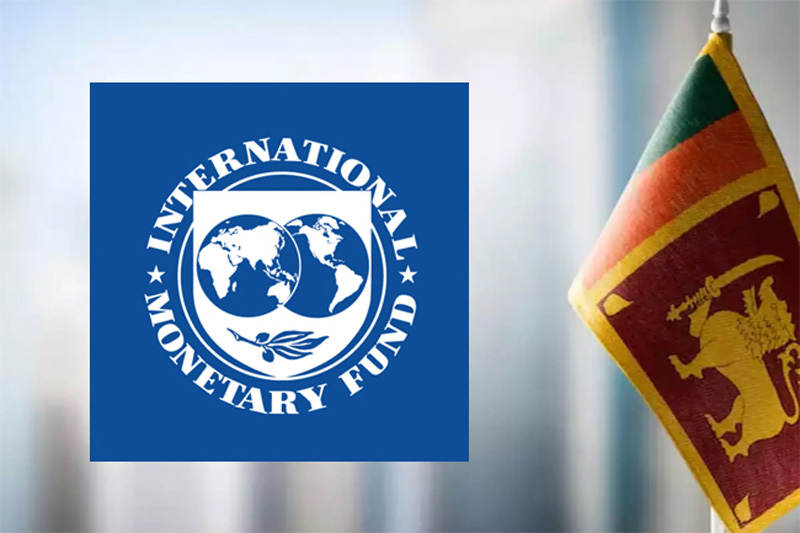
The meeting on Wednesday will play a crucial role in assessing the country’s economic policies and reform advancements.
International Monetary Fund (IMF) Communication Department Director Julie Kozack asserted that Sri Lanka has made "sufficiently strong progress on the debt restructuring front".
She said that the island nation's programme performance is "strong", with most quantitative and structural conditionality for the second review met or implemented with delay, adding that reforms are still ongoing in some areas.
In line with the IMF recommendations, the government’s plan to introduce the proposed Economic Transformation Bill has been delayed by several politicians, trade unions, and civil society organisations, which are challenging the bill before the Supreme Court.
The proposed Public Financial Management Bill is also being challenged before court. The Government is nevertheless hopeful of getting the proposed legislationa passed in Parliament soon.
The Government meanwhile disclosed this week in Parliament that the country’s domestic debt figure stood at Rs. 17,051 billion as of 31 December 2023, and increased to Rs. 17,252 billion by 31 March this year.
State Minister of Finance Shehan Semasinghe further noted that the foreign debt portfolio stood at $ 37 billion, which includes outstanding external debt instalments amounting to $ 5.5 billion from April 2022.
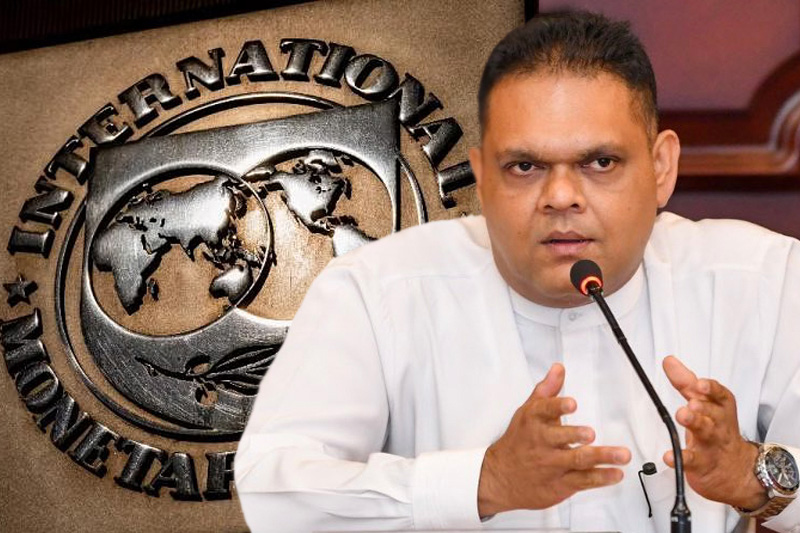
After five decades in politics, Wickremesinghe is now looking at establishing a lasting legacy – that of being ‘the leader who salvaged the country from crisis opening the fire of guns of victory from his new political office in Colombo
However, this legacy will see a dead-end if he is defeated at the Presidential Election. He therefore has a lot of weighing of pros and cons before finally announcing his decision on the Presidential Election.
Signaling a similar out come in Sri Lanka elections, 642 million voters in India peacefully elected a govt of their choice, turned out a surprise result making Narendra Modi,a seasoned legendary politician as the Prime Minister for the third time in succession. .
According to Indian media the voters gave the ruling BJP a victory that feels like a defeat; and the Opposition Alliance a defeat that feels like a victory.
The final outcome was far from what the BJP aimed for – a thumping landslide. They were the single largest party, but fell short of even a simple majority.
The minority factor is decisive in a neck to neck presidential or general elections .The United National Party (UNP) in general and Ranil Wickremesinghe in particular suffered jolt in Parliamentary elections in 2020 . The party polled only 249,435 (2.15%) votes in the country.
For the first time in its history, the grand-old party failed to get an MP elected. The UNP polled only 30,875 (2.61%) in Colombo which was considered its stronghold for decades.
This electoral debacle was mainly due to the bulk of the UNP’s sitting MPs breaking away and forming the Samagi Jana Balawegaya (SJB) under Sajith Premadasa’s leadership. While the Rajapaksa-led Sri Lanka Podujana Peramuna (SLPP) swept the polls in 2020, the SJB came next. Premadasa became the leader of the Opposition.
The UNP breakaway, the SJB led by Sajith Premadasa, which got the bulk of Tamil and Muslim votes. In fact, one-thirds of the MPs elected from the SJB in 2020 are Muslims and Tamils.
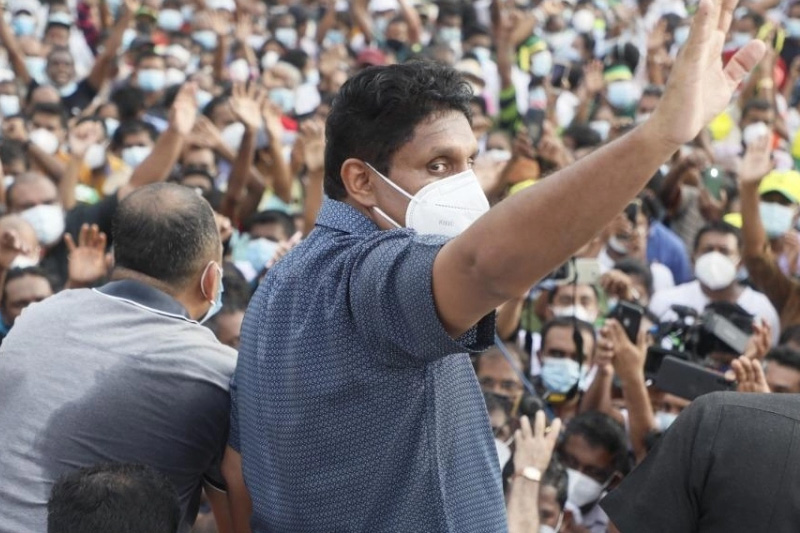
The question that arises at this juncture is whether Ranil Wickremesinghe can win back the Tamil and Muslim votes lost by the UNP to the SJB in 2020 and regain the support of Tamil and Muslim parties and voters to help him win the 2024 Presidential poll?
In 2024, economic issues such as unemployment and inflation as well as female voter ratio will take centre stage, influencing voter preferences more than in 2020.
Social justice and environmental concerns are other factors more prominence in 2024, reflecting changing public priorities and global trends.
The SJP and NPP led by JVP and ruling SLPP along with UNP, SLFP and Ceylon Workers’ CWC remained the principal players in the national political arena, continuing their roles as the leading national parties despite the rise of several minor alliances.
President Ranil Wickremasinghe a shrewd political and electioneering tactician is keeping a trump card close to contest presidential poll as an independent while and moving knight’s castles and bishops guarding them with pawns in the political chess board to check mate opposition king in any upcoming political contest
Last Monday, President Wickremesinghe chaired a UNP Working Committee meeting where election-related matters were discussed at length.
At the meeting several key appointments were made. It included Ravi Karunanayake as National Secretary, Harin Fernando as Election Organiser, Ronald Perera as Deputy General Secretary for Elections, Firdouse Farook as treasurer, Misbah Sattar as Deputy Chairman, and Krishan Theodore as Deputy General Secretary.
President Ranil’s leadership and personality continued to be a significant influence in both elections, driving the UNP’s campaign strategies and voter appeal.
President Wickremesinghe will contest as an independent candidate. In terms of a broad understanding reached with the SLPP, he will write to all registered political parties (including the SLPP) and newly formed groups, informing them of his “independent candidature” and inviting them to extend support.
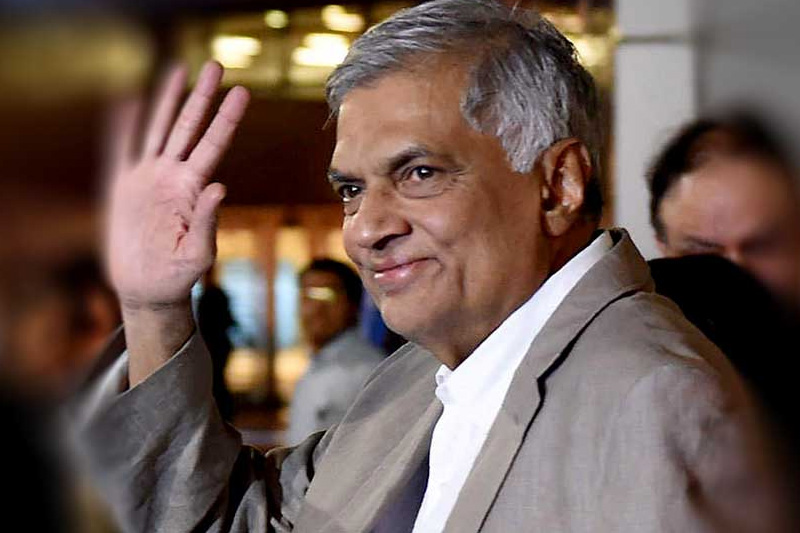
In politics and engaging with the general public we can see the same strategies such as book donations, street protests, and meetings conducted. Anyway, political parties should be concerned with applying creative tactics for different market segments such as “floating votes” and “people who did not vote” for elections.
The coming week will be crucial for Sri Lanka’s economic, social and political stability unveiling several of President’s blue and red oceanic strategies.
Creating a “Blue Ocean” political strategy for Generation Z involves identifying and capitalising on new market opportunities that appeal specifically to this young, tech-savvy, and socially conscious generation.


